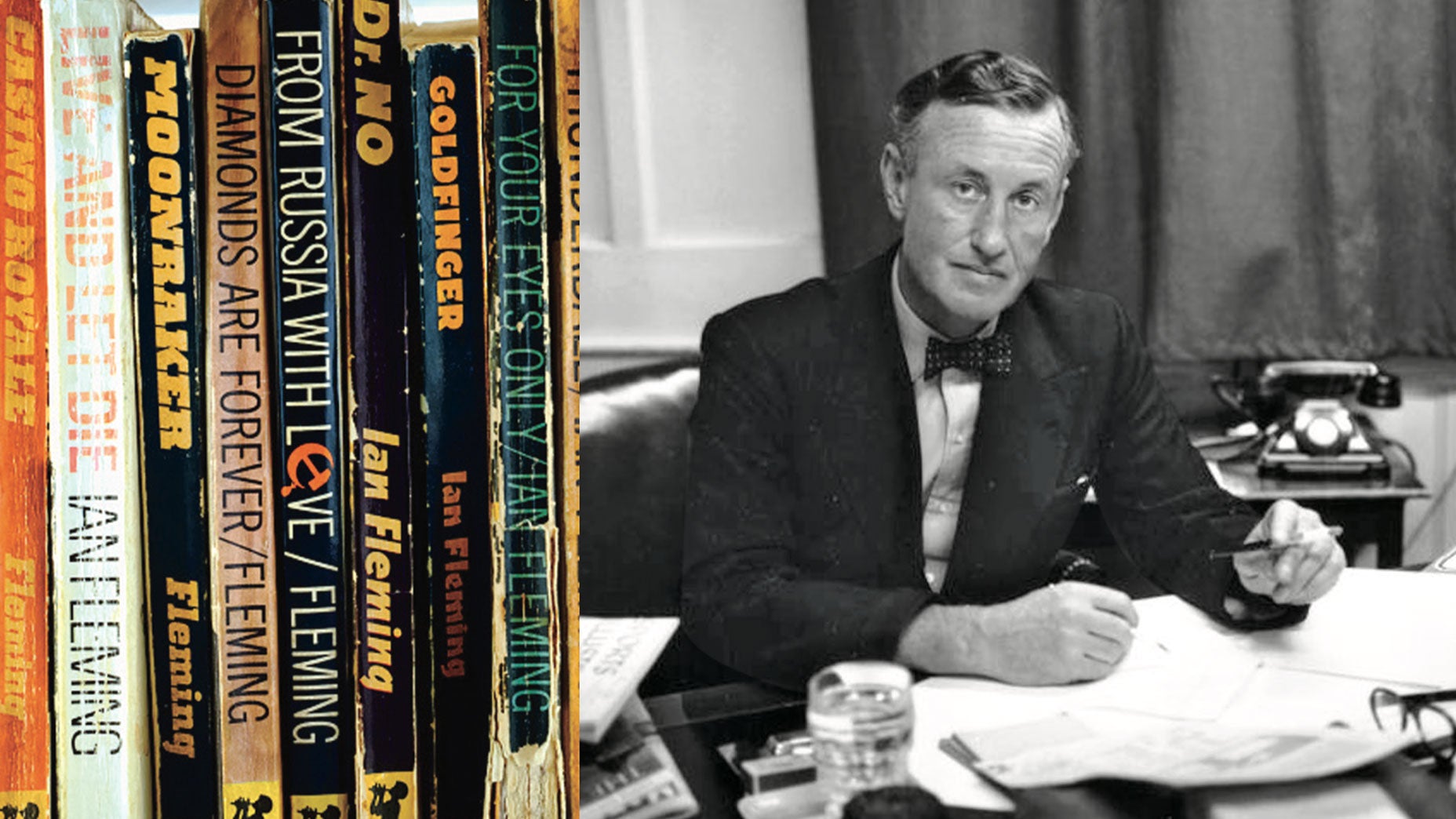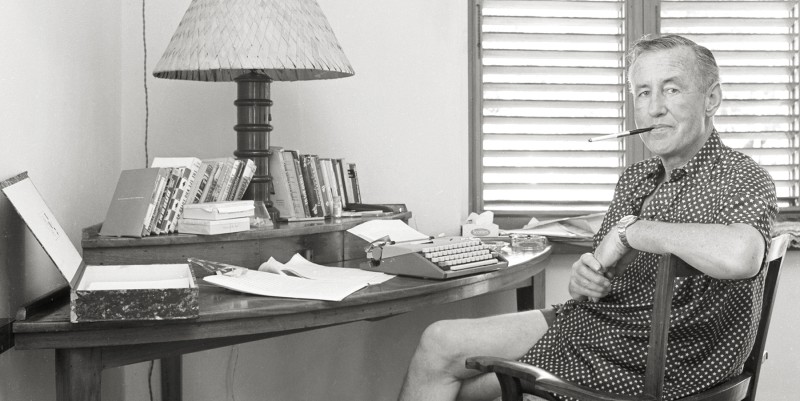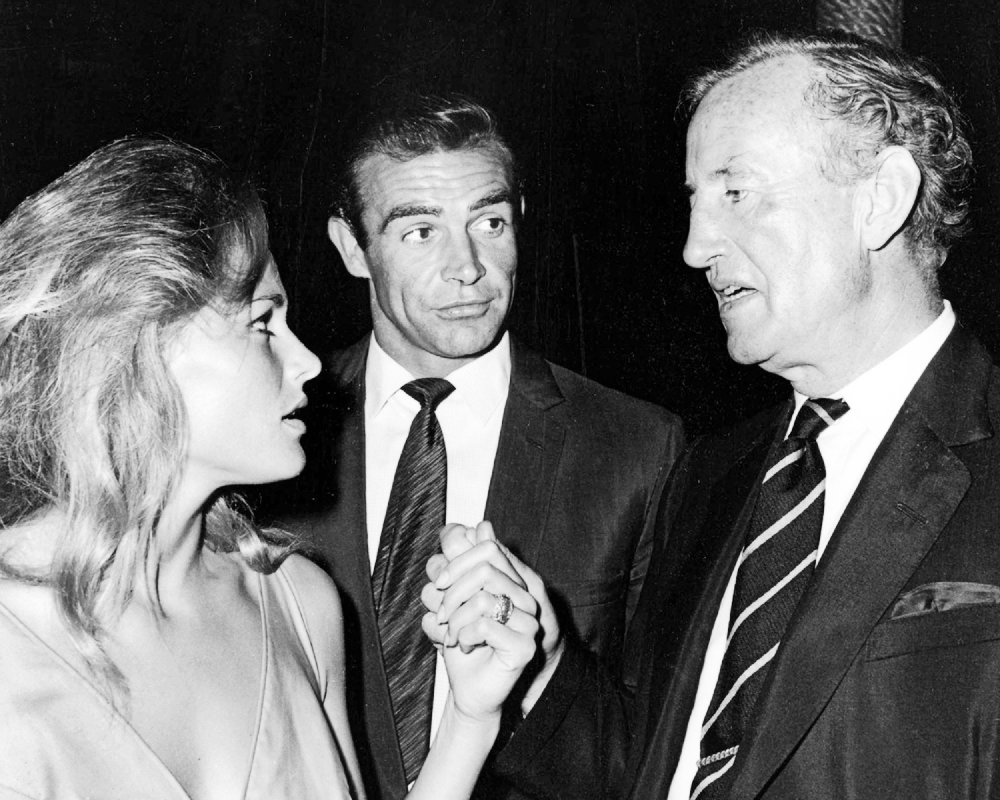Ian Fleming: The Man Behind James Bond and the World of Espionage
Introduction:
Ian Fleming, the prolific author and creator of one of the most iconic literary and cinematic characters of all time, James Bond, remains a towering figure in the world of espionage fiction. With his suave demeanor, daring exploits, and glamorous lifestyle, Bond captivated audiences around the world and became synonymous with espionage, intrigue, and adventure. In this comprehensive exploration, we delve into the life, works, and legacy of Ian Fleming, shedding light on the man behind the legendary spy.
Early Life and Background:
Ian Lancaster Fleming was born on May 28, 1908, in London, England, into a privileged and well-connected family. His father, Valentine Fleming, was a Member of Parliament and war hero, while his mother, Evelyn St. Croix Rose, hailed from a wealthy banking family. Despite his privileged upbringing, Fleming's childhood was marked by tragedy, including the death of his father in World War I and his mother's subsequent remarriage.
After attending Eton College and Sandhurst Military Academy, Fleming embarked on a career in journalism, working for Reuters news agency and later as a foreign manager for the London Sunday Times. His experiences as a journalist and wartime intelligence officer would later influence his writing and provide inspiration for the James Bond novels.
Creation of James Bond:
In 1952, while on vacation in Jamaica, Ian Fleming began writing his first novel, "Casino Royale," which introduced the world to the character of James Bond, a suave and sophisticated British secret agent with a penchant for danger and intrigue. Drawing on his own experiences in the intelligence world and his love of adventure, Fleming crafted a character who embodied the ideals of courage, resourcefulness, and moral ambiguity.
Published in 1953, "Casino Royale" was an instant success, launching Fleming's career as a novelist and laying the groundwork for one of the most successful literary franchises of all time. Over the next 12 years, Fleming wrote a total of 14 James Bond novels and numerous short stories, each one featuring Bond embarking on daring missions, outsmarting villains, and seducing beautiful women.
The James Bond novels became bestsellers around the world, garnering critical acclaim for their gripping plots, vivid descriptions, and larger-than-life characters. Bond's adventures took him to exotic locations spanning the globe, from the casinos of Monte Carlo to the ski slopes of the Alps, capturing the imagination of readers and solidifying his status as a cultural icon.
Evolution of James Bond on Screen: In addition to his success in literature, James Bond achieved even greater fame and recognition through the silver screen. In 1962, the first James Bond film, "Dr. No," was released, starring Sean Connery as the iconic spy. The film was a box office hit, paving the way for a long-running and immensely successful film franchise that continues to this day.
In addition to his success in literature, James Bond achieved even greater fame and recognition through the silver screen. In 1962, the first James Bond film, "Dr. No," was released, starring Sean Connery as the iconic spy. The film was a box office hit, paving the way for a long-running and immensely successful film franchise that continues to this day.
Over the years, various actors have portrayed James Bond on screen, including Roger Moore, Pierce Brosnan, and Daniel Craig, each bringing their own interpretation to the role. Despite changes in casting and filmmaking styles, the character of James Bond has remained a cultural touchstone, synonymous with action, adventure, and intrigue.
The James Bond films have become known for their high-octane action sequences, stunning cinematography, and iconic theme songs, earning numerous awards and accolades over the years. From "Goldfinger" to "Skyfall," each installment in the series has captivated audiences with its blend of suspense, humor, and spectacle, solidifying James Bond's status as one of the most enduring and beloved characters in cinematic history.
Legacy and Cultural Influence: Ian Fleming's legacy extends far beyond the world of espionage fiction. His creation of James Bond has had a profound and lasting impact on popular culture, inspiring countless imitators, parodies, and homages across various media. The character of Bond has become a cultural icon, synonymous with sophistication, style, and adventure, influencing everything from fashion and lifestyle trends to literature and film.
Ian Fleming's legacy extends far beyond the world of espionage fiction. His creation of James Bond has had a profound and lasting impact on popular culture, inspiring countless imitators, parodies, and homages across various media. The character of Bond has become a cultural icon, synonymous with sophistication, style, and adventure, influencing everything from fashion and lifestyle trends to literature and film.
Moreover, the James Bond franchise has spawned a vast multimedia empire, including novels, films, video games, and merchandise, generating billions of dollars in revenue and captivating audiences of all ages around the world. Bond's iconic catchphrases, gadgets, and vehicles have become ingrained in popular consciousness, while his suave demeanor and debonair charm continue to captivate audiences across generations.
Beyond its entertainment value, the James Bond franchise has also had a significant impact on the world of espionage and intelligence. Bond's adventures have shaped public perceptions of espionage and espionage, influencing how spies are portrayed in popular culture and shaping public attitudes towards intelligence agencies and their activities.
Ian Fleming's creation of James Bond has left an indelible mark on popular culture and the world of espionage fiction. Through his gripping novels and thrilling adventures, Fleming introduced readers to a world of intrigue, danger, and glamour, captivating audiences with his vivid descriptions, larger-than-life characters, and pulse-pounding plots.
From humble beginnings as a journalist and intelligence officer to becoming one of the most successful and influential authors of the 20th century, Fleming's legacy lives on through the enduring popularity and cultural impact of James Bond. As long as there are readers and moviegoers seeking excitement, adventure, and intrigue, the world of James Bond will continue to captivate and inspire audiences for generations to come.
Fleming's Personal Life and Influences: Beyond his literary achievements, Ian Fleming's personal life and experiences also played a significant role in shaping his writing and the character of James Bond. Fleming's own experiences as a naval intelligence officer during World War II provided him with firsthand knowledge of espionage and covert operations, which he drew upon extensively in his novels.
Beyond his literary achievements, Ian Fleming's personal life and experiences also played a significant role in shaping his writing and the character of James Bond. Fleming's own experiences as a naval intelligence officer during World War II provided him with firsthand knowledge of espionage and covert operations, which he drew upon extensively in his novels.
Moreover, Fleming's glamorous lifestyle and love of luxury and adventure are reflected in the character of James Bond, who shares Fleming's taste for fine food, drink, and travel. Fleming's own travels to exotic locales such as Jamaica, where he wrote many of his novels, provided inspiration for Bond's globetrotting adventures and the vividly described settings that became synonymous with the series.
Despite his success as a novelist, Fleming's personal life was not without its challenges and controversies. His tempestuous relationships, including multiple marriages and extramarital affairs, were often fodder for tabloid gossip and speculation. Additionally, Fleming's heavy smoking and drinking habits took a toll on his health, leading to various health problems later in life.
Critical Reception and Literary Legacy:
While Ian Fleming's James Bond novels were immensely popular with readers, they received mixed reviews from literary critics. Some critics praised Fleming's gripping plots, colorful characters, and evocative prose, while others dismissed the novels as escapist fantasy and criticized their portrayal of women and minorities.
Nevertheless, Fleming's impact on the genre of espionage fiction cannot be overstated. His creation of James Bond revitalized the spy thriller genre, introducing readers to a new kind of hero – one who was flawed, complex, and morally ambiguous, yet undeniably charismatic and capable. Fleming's influence can be seen in the works of subsequent authors, filmmakers, and creators who have sought to emulate the success of the James Bond franchise.
In addition to his James Bond novels, Fleming wrote several other works of fiction, including the children's book "Chitty-Chitty-Bang-Bang" and the non-fiction book "Thrilling Cities," based on his travels around the world. While these works did not achieve the same level of success as the James Bond series, they further showcased Fleming's talent as a storyteller and his keen eye for detail.
Conclusion: In conclusion, Ian Fleming's legacy as the creator of James Bond is one that transcends the realm of literature and entertainment. Through his gripping novels and iconic character, Fleming introduced readers to a world of espionage, intrigue, and adventure, captivating audiences with his vivid descriptions, larger-than-life characters, and pulse-pounding plots.
In conclusion, Ian Fleming's legacy as the creator of James Bond is one that transcends the realm of literature and entertainment. Through his gripping novels and iconic character, Fleming introduced readers to a world of espionage, intrigue, and adventure, captivating audiences with his vivid descriptions, larger-than-life characters, and pulse-pounding plots.
From the pages of his novels to the silver screen, James Bond has become a cultural icon, synonymous with sophistication, style, and adventure. Fleming's enduring legacy lives on through the continued popularity and cultural impact of the James Bond franchise, which continues to captivate and inspire audiences around the world.
As we celebrate the life and works of Ian Fleming, we are reminded of the power of storytelling to transport us to new worlds, ignite our imaginations, and capture our hearts. Through his creation of James Bond, Fleming has left an indelible mark on popular culture and the world of espionage fiction, ensuring that his legacy will endure for generations to come.







































